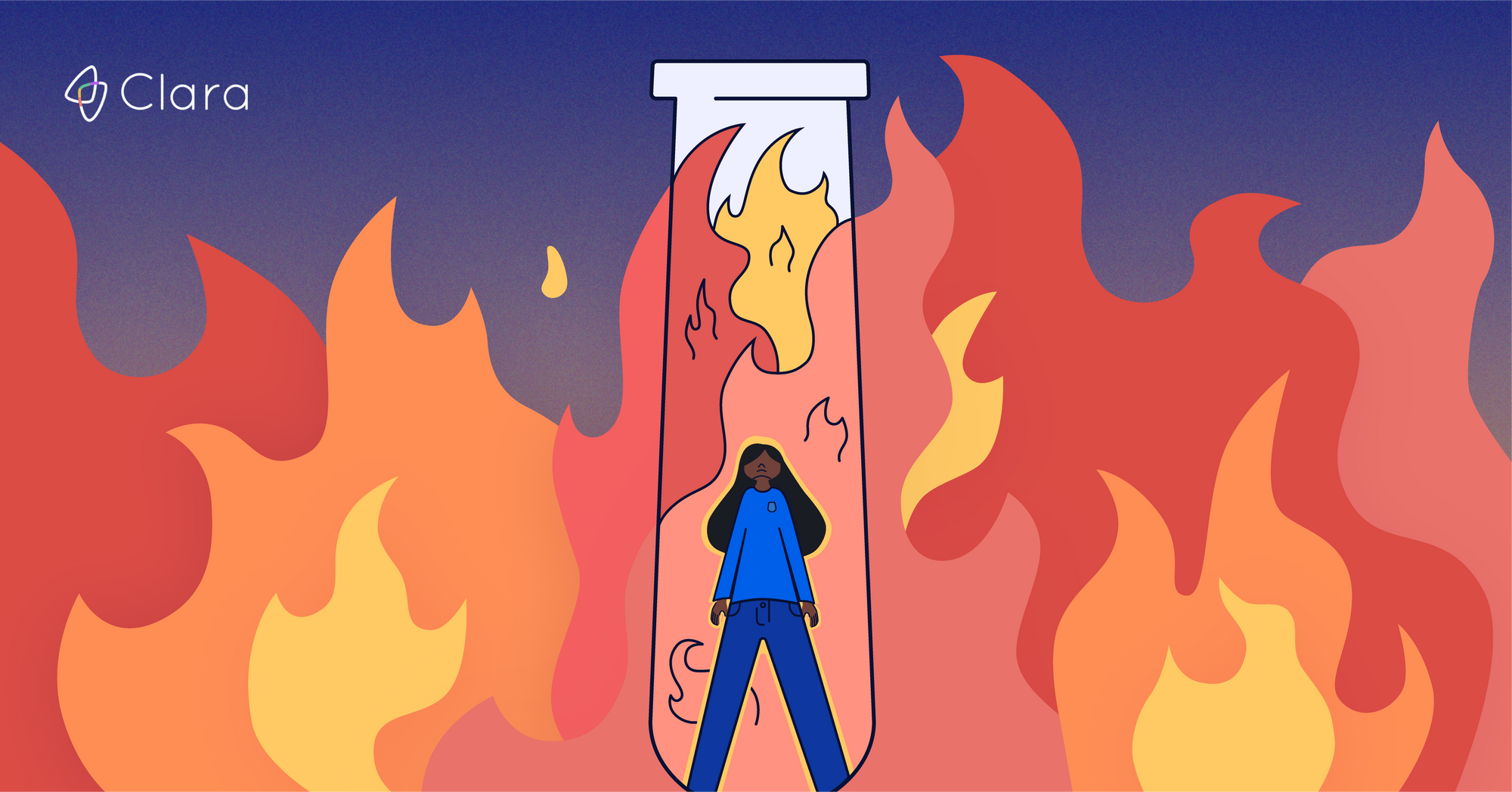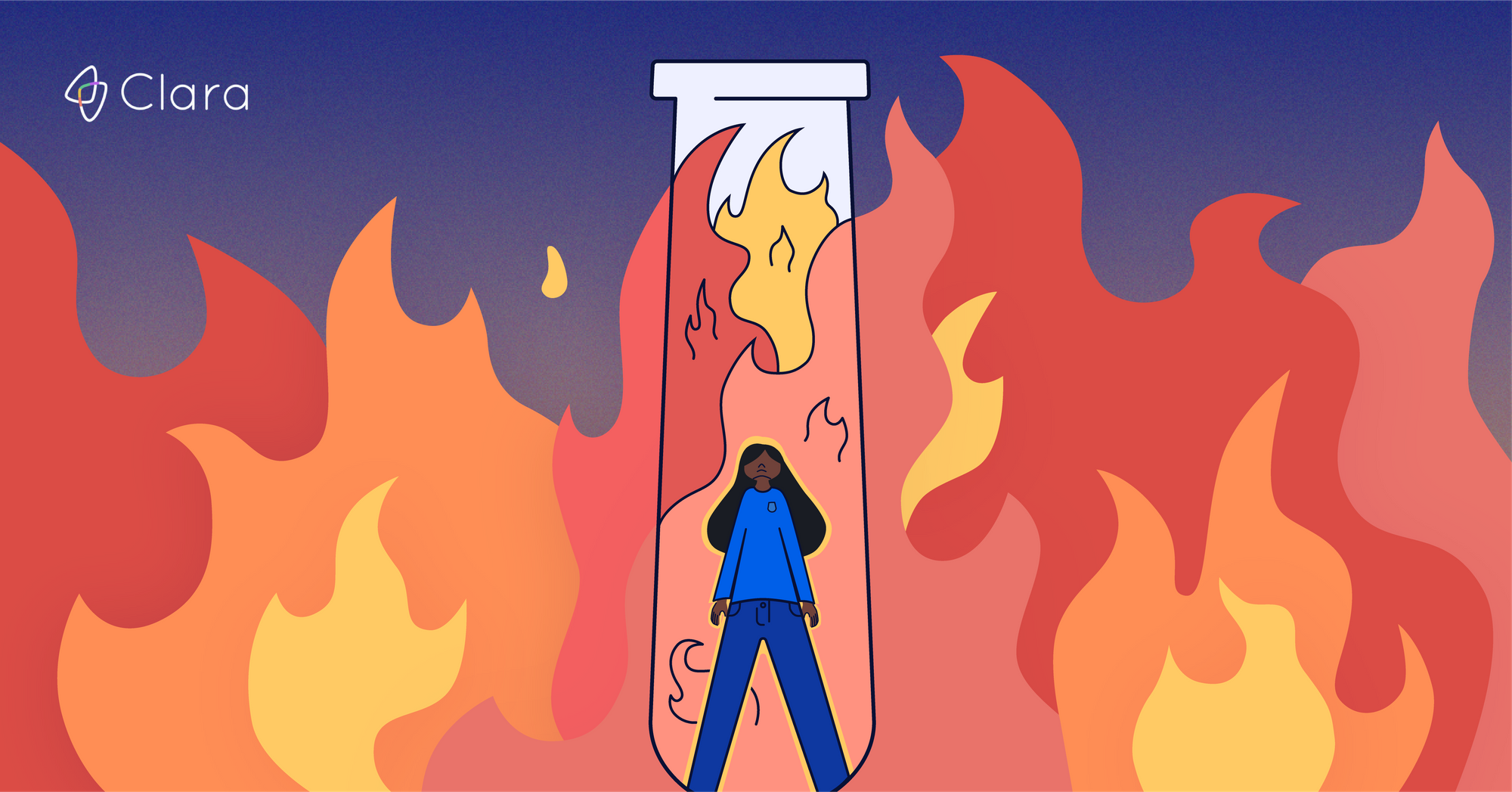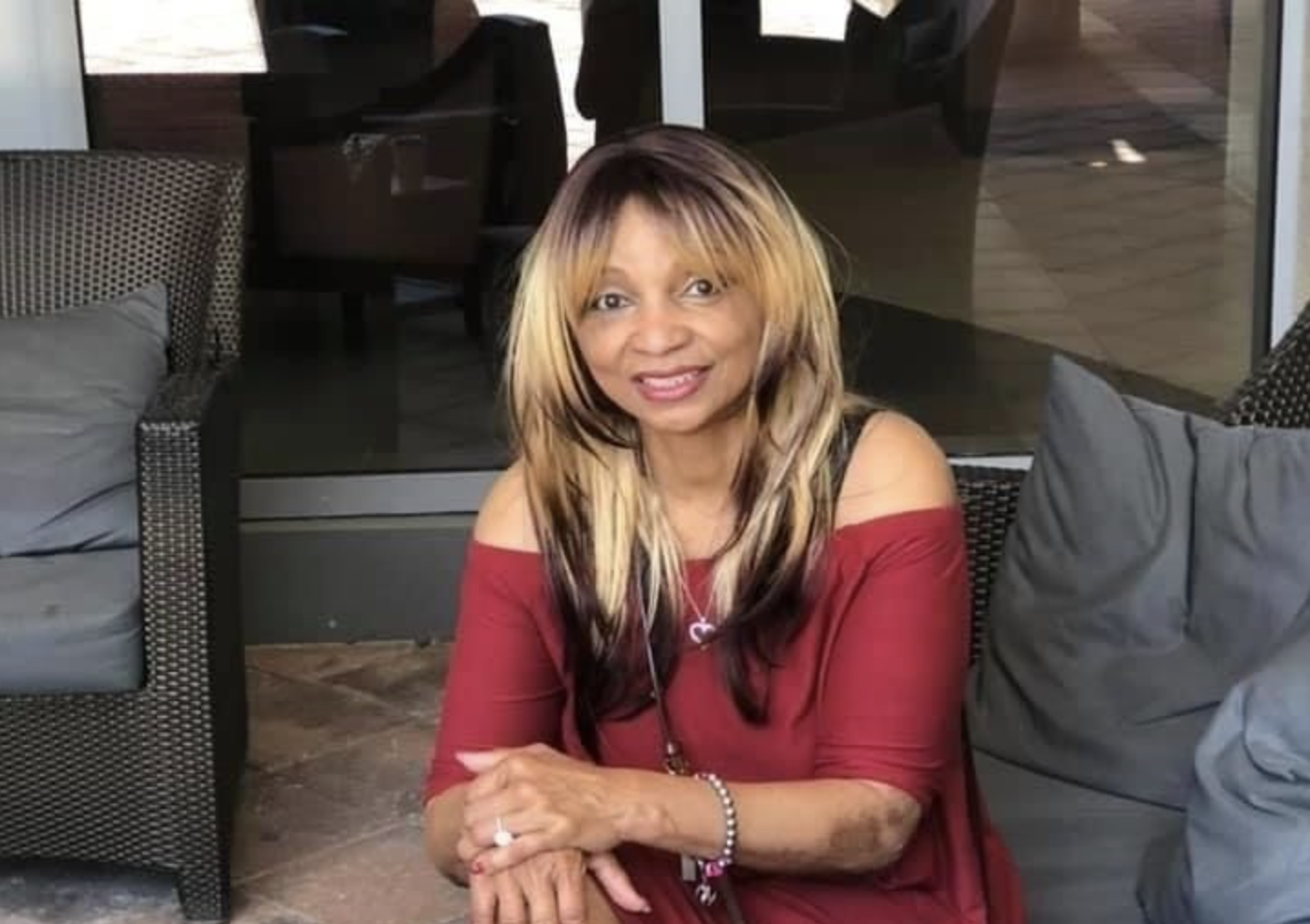Aaron: Today we have Shannah Hudson on the podcast. We met at the Global Genes Rare Disease Conference down in Irvine, California, I guess just a couple of weeks ago, really. And we had such a great conversation, and I'm so, so excited to have you. So welcome to the pod.
Shannah: Well, thank you. I'm very blessed to be able to speak with you again.
Aaron: Yeah, so tell the listeners ... I guess, just to set up the framing, tell the listeners where you're dialing in from.
Shannah: I am in Columbus, Mississippi.
Aaron: Cool.
Shannah: So down south.
Aaron: Yeah. How's the weather down there, here in mid-November?
Shannah: It is cold. We had 70-80 degree weather last week with tornadoes, and this week we've had snow flurries last night and 30s and 40s.
Aaron: Oh, boy.
Shannah: So that's Mississippi weather for you.
Aaron: Yeah, sure sounds like it. Well, at least it's not hot and humid.
Shannah: Yes.
Aaron: If that's any respite at all. I don't know that it is. But yeah, all small talk aside, I'm so excited to have you on because your story of how you got started in advocacy, how you've evolved from it, raising a daughter, Emmalyn, with a super rare condition in a place like Mississippi, you just had so many stories to tell. And I think it would be really powerful just to give you a platform to talk about it at length, and talk about it in as much detail as you want. But I guess we could set up the conversation by talking about your daughter, Emmalyn.
Shannah: Yes. My daughter, Emmalyn, she is eight-years-old, and she has a rare genetic metabolic disorder, Glutaric Aciduria/Acidemia Type 1.
So we have been on this rare disease journey for a little over eight years now.
Aaron: Yeah, and for the listeners at home, tell us about the condition, and we'll start calling it GA1 because I asked you earlier to send me the name of the thing. I practiced so many times. I'm pretty sure that's why I can't pronounce anything right now. We'll call it GA1, but tell us what GA1 entails, and tell us about how rare it is.
Shannah: Okay. Well, GA1, it is a metabolic disorder, and it's classified under an organic acidemia. And basically, her body lacks the necessary enzyme needed to breakdown the amino acids lysine, hydroxylysine, and tryptophan, which, as you know, are building blocks of protein. They are essential amino acids. And so when those building blocks of protein are broken down, there's excessive levels of breakdown product that accumulates, and it is toxic. And since she's missing that enzyme, it can accumulate and pass through the blood-brain barrier, and it can cause damage to her brain, specifically the white matter and the basal ganglia.

So there is no cure for her disorder, just like about probably 95% of all rare diseases. There's no cure. We manage her disorder daily by specialized metabolic formula. She takes a medication. She is on a carefully measured, low protein diet. We get frequent blood work to check her amino acid levels, and to adjust her diet and formula based on those numbers. And we also try to isolate her from the public during the peak cold and flu season. So she is, like I said, eight-years-old now, and she is actually pretty healthy. She is doing exceptionally well. She is-
Aaron: Well, you showed me a picture of her ... Sorry to interrupt. You showed me a picture of her during taekwondo.
Shannah: Yeah, well, she does karate.

Aaron: Karate, that's right.
Shannah: Yes. She began in karate about six months ago, and it has been wonderful, and it's something that we have finally found something that she enjoys, and that she does well. And so we're hoping that she will continue and eventually have her black belt. You never know.
Aaron: Yeah.
Shannah: But that's something that she truly enjoys. So she's doing great. Her disorder is about 1 in 100,000 worldwide, so that's the rarity of it. There are only a couple cases of her disorder in our state, and we have to travel, actually, about two and a half hours to the children's hospital in the middle of the state for us to be able to receive care for her because it is our only metabolic center for our state.
Aaron: That's the sort of stuff that I would love to dig into, just the sheer logistics of raising a child, no matter how healthy, the logistics alone are incredibly difficult. And to think that you're adding things like a two and a half hour drive to the children's hospital ... Where is that children's hospital, by the way?
Shannah: It is located in Jackson, Mississippi. It's pretty much right in the middle of our state. It is part of the University of Mississippi Medical Center, the Blair Batson Children's Hospital. And she has been receiving care there since she was six days old.
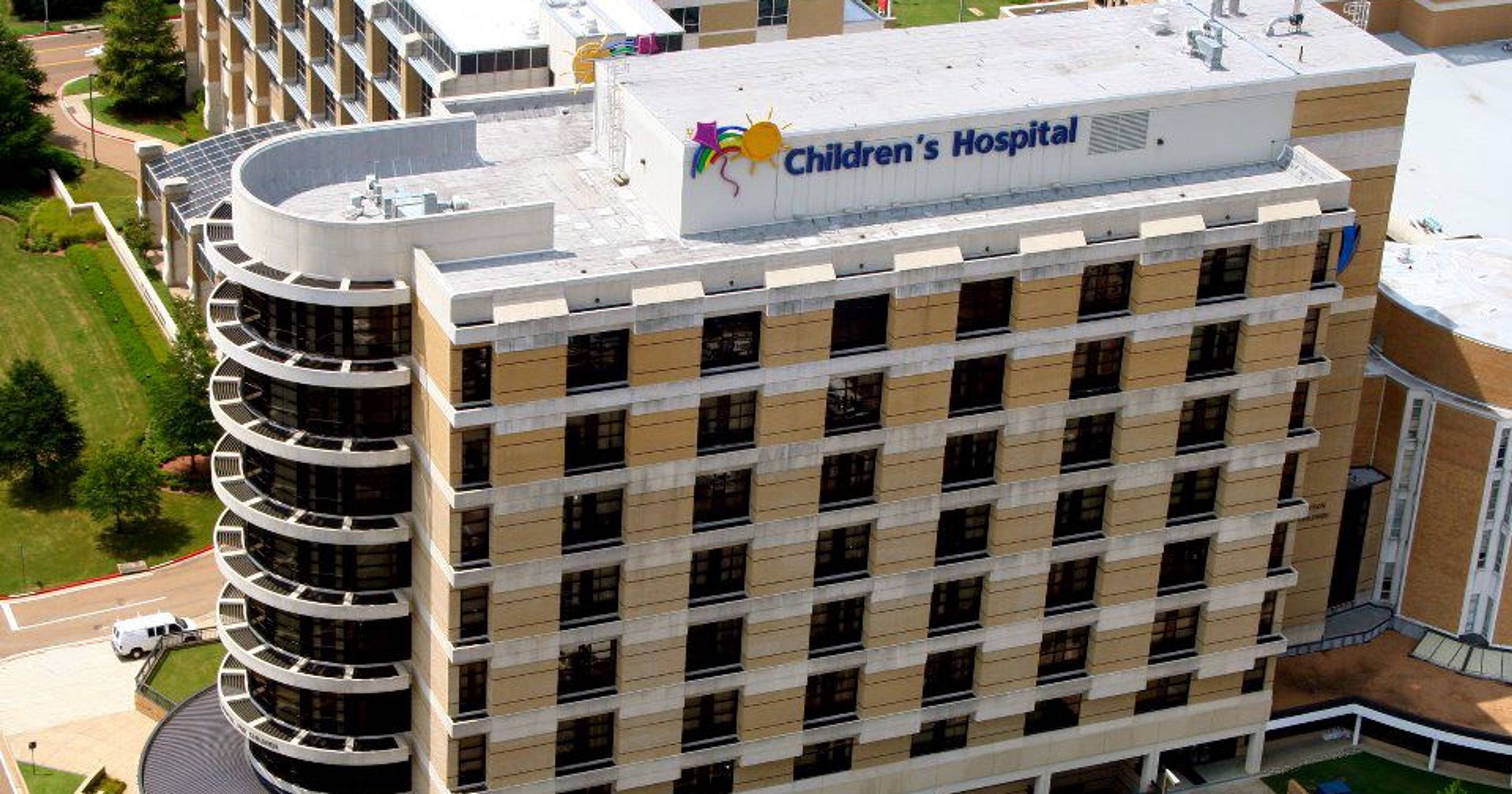
Aaron: Wow.
Shannah: She received her diagnosis on her second night at home after she was released from the hospital after she was born, and it was around 10:30 that night. I had just fed her and laid her down to sleep, and our phone rang. And so my husband answered, and they wanted to speak to the mother of Emmalyn Hudson. So he gave me the phone, and it is the phone call that no parent ever wants to receive. The nurse-
Aaron: Of course.
Shannah: Pretty much told me that Emmalyn's newborn screen came back positive for a genetic disorder, and that she was very sick, and we needed to bring her to the emergency room immediately.
Aaron: Oh, gosh.
Shannah: So of course, we were full of questions, and they said they could not really tell us anything over the phone. They told us to pack our bags, that we would be getting transferred to the children's hospital in Jackson the next morning after she was stabilized. So we packed our bags, gathered her up, within five minutes we were out the door, headed to our local emergency room. And the first I had ever heard of her disorder was at the nurse's station after they had started trying to stabilize her.
Shannah: They told me that I had a phone call, and it was the metabolic geneticist from Jackson that was on the phone. And this was the first time I had ever spoken to him, the first time I'd ever heard the name of the disorder. And so he told me what it was, and his instructions were, "We'll talk more about it in the morning when you get here, but do not Google it."
So of course, one of the first things that I do is after I get off the phone and I have a few hours after I'm trying to decompress, I get on Google, and it's-
Aaron: Of course.
Shannah: Full of nightmares of the possibilities of what can happen because of her disorder, but it's all the terrible things, but it doesn't tell you all the happy things about how great she can do if we follow the protocols and we do the proper steps for managing her care.
So it was definitely a devastating phone call. It was probably the worst phone call we have ever received, but it is also the best phone call that we have ever received because it is the phone call, it is the reason why her life was saved, because of the quick result and the quick response by her team in getting her to the hospital, getting her stabilized, and getting her transferred to Children's for immediate care upon her diagnosis. We were able to prevent a lot of the brain damage that is a possibility during those first few weeks of life.
So we were very blessed.
Aaron: Yeah, it's incredible that they were able to catch it. I'm sure you ... Did you even have an inkling that ... You said it's the phone call that no mother wants to get, or no parent wants to get, but-
Shannah: Yes.
Aaron: I imagine that you weren't even thinking rare condition phone call. You were thinking phone call in general about something that could be going a little less than ideal.
Shannah: Right. We had no idea. Like most parents, moms especially, when you've just had a new baby, and the baby comes out looking perfect and beautiful, and has 10 fingers and 10 toes, and there's no immediate health concerns, we thought we took home a healthy newborn. And that just ended up not being the case. Her disorder does not present, physically, on the outside, until she has already suffered a metabolic stroke-
When you've just had a new baby, and the baby comes out looking perfect and beautiful, and has 10 fingers and 10 toes...We thought we took home a healthy newborn.
Shannah: Which is internal. And so we were looking at her, and she looked like a beautiful, healthy, happy little newborn.
Aaron: She still looks beautiful, and healthy, and-
Shannah: Thank you. Yes, she does.
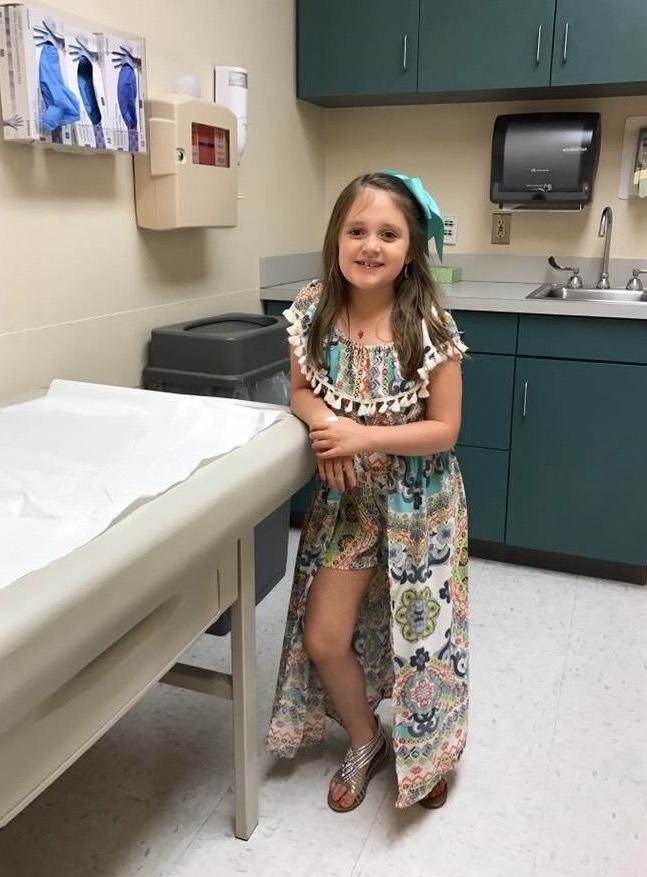
Aaron: We'll put some photos up on the notes of the podcast, if you don't mind. But people have to see this photo of her in her karate outfit. It's called gi or something. Right? People have to see it. It's amazing.
Shannah: Yes.
Aaron: It's incredible. But you wanted to specifically talk, before everything else ... When I asked you for something you wanted to discuss, you mentioned one thing, and it was newborn screening and how impactful that was, obviously, on your life. So do you wanna speak a little bit more about the importance of this stuff?
Shannah: Yeah. I would just like to explain what newborn screening is. During those first 24 hours after a child is born, they typically get taken back to the nursery, and they get a heel stick, which they get blood drops on this piece of paper.
And that piece of paper takes those blood drops and sends it in to a center, and they test for a varying amount of genetic disorders. Not every state tests for the same exact number of disorders. Thankfully, Mississippi, which is where we live, my daughter was born, they actually test for some of the most disorders in the United States, and her disorder happened to be on the screening. And the newborn screen, it basically will flag if any levels come back abnormal. And so that is what happened.
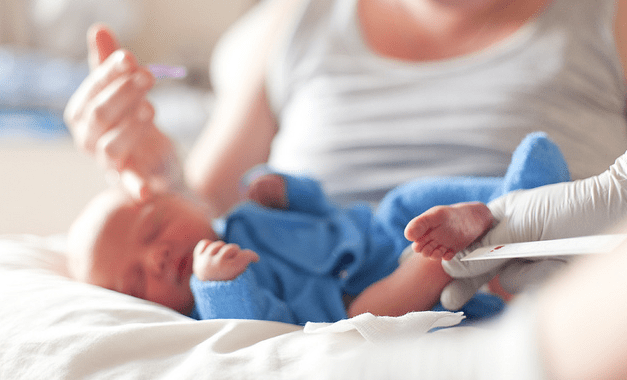
And had we not received the positive newborn screen as quickly as we did and getting her the help that she needed, she either probably would not be here today, or she could have permanent debilitating brain damage. She could be cerebral palsic and have way more issues than we have to deal with. She is very, very healthy, and very, very happy and full of life, and that is because we received that newborn screen so quickly and were able to start treatment immediately.
It is something that you can opt out of, and I want to encourage all parents to not opt out of getting the heel stick and the newborn screening when their children are born. We never expected to ever have a positive result.
I want to encourage all parents to not opt out of getting the heel stick and the newborn screening when their children are born.
Aaron: Of course.
Shannah: We were even told in the hospital that, "Oh ... " I asked why were they doing the heel stick, and I told them that that was okay. And they said, "Oh, well, you'll never hear back from us." So it never crossed my mind again-
Aaron: Right, of course.
Shannah: Until that night when I got that phone call.
Aaron: That's just incredibly lucky, I suppose, or blessed, as you say, that it was caught so early. I'm so glad that it was. And when you and I spoke in Irvine, California, you mentioned at the very end that you had plans to set up a nonprofit support group, or nonprofit group, to help those parents and children who are living with not just this condition because it's so rare, but like the umbrella condition that contains this and other rare conditions.
And it seems like such a big thing to even think about such a big project to undertake, and I know that you've had a journey to get to that point as an advocate, as a parent, as a person. So I would love for us to talk about how things changed, who you were before all this began, and who you became as a result, and just being as good of a parent as you could possibly be.
Shannah: Well, I can say that I never imagined being a rare disease parent and having this life, but at the same time, I have been incredibly blessed by not only my daughter, Emmalyn, all those that I have met through this journey of rare disease, other families, other parents, other children. It has been amazing and I am still learning how to advocate for her on a daily basis. And I really have not been involved in the advocacy world but only a couple years.
It was July of 2016, actually, was the first time I took any sort of advocacy trip to go and tell others about my daughter. Her genetic doctor, we were at an appointment, and out of the blue he came in and said, "I have a proposition for you. There is a Regional Genetics Network Conference, and we need a parent advocate to go and represent the children that have rare diseases from Mississippi. Would you be interested in doing this?"
Aaron: Small ask.
Shannah: And of course ... Yeah.
I was blown away at first, just the fact that he even considered asking me to bet the one to do this. And I was also pretty overwhelmed at the possibility of what all it would entail, and I felt very inadequate that I could be able to do this. But at the same time, I had been praying for months and months that I would have some way, that some door would open up for me to be able to enter into the rare disease advocacy world, and I did not even know where to start. And when he presented me with this opportunity, I of course, as you know, I was very thankful, very blessed, and I accepted.
And it actually was ... The conference was only about two weeks later, so I had very little time to prepare before attending the conference, but I did. I went to the Southeast Regional Genetics Network Conference, and represented Mississippi there on the consumer task force. And that was really my first opportunity of becoming involved, meeting other parent advocates, meeting others that do this day in and day out, as well as industry partners, and people like you that I never would have had the opportunity to be able to mingle, and talk to, and share our story. So that was about two and a half years ago, and ever since then I have been involved in several different ways with the advocacy. I've done a lot of local advocacy and awareness things. I've also went to ... Well, I met you at the Global Genes Summit last month. I also attended the Rare Disease Week on Capitol Hill-
Aaron: Oh, amazing.
Shannah: That's every year at the last week in February. Rare Disease Week is the last day of February, and so it's to celebrate Rare Disease Day, and it is a week where the rare disease community comes together from across the country, and they become educated on what federal legislative issues are going on, we're able to meet and mingle with other advocates and industry partners, and to also share our stories, our rare disease stories and journeys, with the legislatures as we have meetings with them. And so it was an amazing opportunity. I went for the first time this past February, and I'm hoping that I will be able to try to get the money and be able to go again this coming February. I would love to make it something that I'm able to do every year.
But I still am involved with the Southeast Regional Genetics Network. I attended the conference for the third time this past summer. And I eventually would love to be able to start a Mississippi metabolics foundation for all those families and children that do have metabolic disorders, not just for genetic disorders that are like my daughter's, GA1, but for all the other different ...
There's about 14 to 15 different metabolic disorders that are represented in our state, and that's about 150 as of my last count, I've been told, children that have these disorders, and they have very little resources, and very little, I guess, support for them and for their medical foods and medical formula that they have to take. And so I would love to be able to start a foundation to help those, as well as my daughter, that do have the metabolic disorders.
About 150 children that have these disorders [in Mississippi] and they have very little resources and very little support.
That is on my agenda for next year. I'm in the process of looking for board members who would like to join me in this effort to become involved. And so that is kind of what my next project is, is to continue with the advocacy, continue with representing Emmalyn in the state at several different conferences, but at the same time try to get this foundation started so that I can, of course, give back to other children that are in our state that are severely ... We have very little funding, very little benefits for children that have rare diseases in our state, specifically metabolic disorders.
Aaron: Well, it's completely underrepresented in the conversation. I don't think folks who are lucky enough to be healthy across most of their family even consider something like this something that could happen in a family really, or to someone so young at birth. So there are some questions I want to ask about that, specifically about raising a child with a rare condition in Mississippi, like you said, very few resources. So you had some stuff to say around that when you and I first spoke, but I would love to talk a little bit about that very first trip. Right? So just before we move on, I just want to kinda get a sense of ... You said you had two weeks before the conference.
Shannah: Right.
Aaron: And you must have had so much nervous energy in between all the other stuff you had to do with Emmalyn, with your family, just in your social life, whatever, and then that trip out. Where was the conference?
Shannah: The conference was in Ponte Vedra in Florida. That was where it was that year in 2016. It has since been moved to Asheville, North Carolina for the last two years. But it was ... We had very little time to prepare, so we just made the decision to ... My mother-in-law decided to join me, and we took my daughter, and we just road-tripped, and it took about 12 hours for us to get there. It was a very, very, very long day of travel.
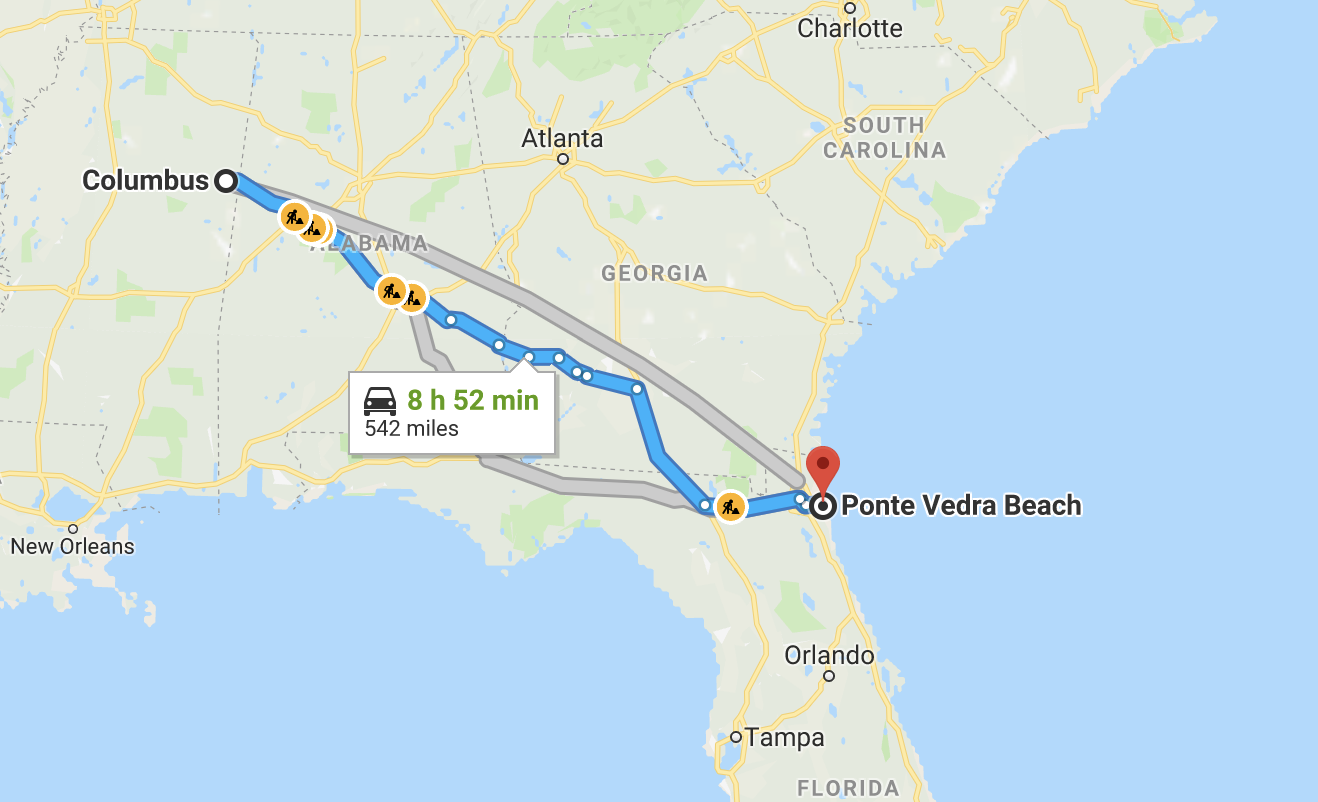
Aaron: Yeah, you did that in one day?
Shannah: Yes.
Aaron: Oh, my goodness.
Shannah: We did. We were just anxious to get there. Of course, having an eight ... Well, she was six at that time, having a six-year-old, we had to make multiple stops along the way. So what should have been a 9-10 hour trip ended taking about 12 hours, but we just went down there together. I did not know what to expect or what I was gonna be becoming involved in, but everyone was very welcoming. And the other parent advocates for the other states were just absolutely wonderful, and I learned so much during that very first conference, and it has been a life-changer for me. So I'm still involved with that conference. I attend the meeting every year.
It's in July every year. And so it was really my very first step at meeting others that are in the rare disease industry, whether they be advocates, medical professionals, industry partners, all these different companies that are involved. And it was just an amazing few days. And so as I finished up those few days, I just basically tried to soak it all in, and come back and decompress, and figure out, "Okay, now that I've done that, now that I've become involved in this, what is my next step? What else can I do?" And so that just kind of started my journey of reaching out to companies, and reaching out at different conferences, and becoming involved more. Somehow I had applied for ... Right after that conference, I had applied for a Rare Disorder Patient Ambassador Program with a company, it's biotech company, Illumina. It is out of California. And never did I dream that I would be chosen to come to participate in their storytelling and advocacy workshops, but I was one of the 12 that were chosen to come and participate. So that was another-
Aaron: That's incredible.
Shannah: Great opportunity that I had.
Aaron: Yeah.
Shannah: I applied for it, I did my interview over the phone with them, and had no idea that I would be chosen. But it was an amazing opportunity for me to be able to go and learn more about how do I effectively tell Emmalyn's story and our journey in rare disease so that I can make an impact and inspire others to want to do the same, as well as bring awareness, and to peak the curiosity and the interest of those companies that would help further my career as an advocate. So it was an amazing opportunity. I've had several amazing opportunities in the advocacy world, and I just hope that they continue.
Shannah: And I hope that through all of this, that I'm at least inspiring others to be able to go out and share their story, and to tell others because my eventual ... Obviously, what I would love is to have a clinical trial for my daughter, to have a cure to be found for her. So any awareness, any opportunity that I have to share her story is only gonna make that more of a possibility.
Aaron: Right. And you are so gifted as a storyteller, I think, that I've ... Sorry. You're just so gifted as a storyteller that I have a hard time believing that you had this doubt about your ability to get involved, to get selected. Just I think your impact, I think you're probably come to realize more and more, it sounds like it anyway, just the level of impact you, and your gifts, and your story has on people. And it's just really, really, for me personally, really inspiring to hear up close and personally, because you and I spoke ...
And I think this will be a segue into the conversation about what it was like in those beginning years before ... It was six years, right, before you began your advocacy journey. So you and I spoke a little bit about what it was like to raise a child with a rare condition in Mississippi, and the various roadblocks that came up in your life that you had to figure out some way to navigate. I'm sure you have a lot to say about that.
Shannah: Yes. Those first few years were extremely tough and hard to even really think back on because it just seems like such a negative time because I was just so overwhelmed, and just devastated that my daughter was having to go through this. But it was tough. We had to travel for that first year pretty much every couple weeks to Jackson roundtrip, and to get blood work. And we had several hospitalizations those first few years. And another challenge that we had was having access to the medical formula. The metabolic formula that she takes is absolutely necessary for her to be able to take for her to get all the vitamins, and minerals, and nutrients that she needs, but it has the offending amino acids that she cannot breakdown removed from the formula.
So that was something that we knew that she would be required to take, and the current protocol is that the formula is part of her diet for life, so it's something that she will probably always have to take. And so just trying to learn about formula, having to come to the realization of how expensive the formula is, that was one thing we were very fortunate those first couple years, because our state had a children's medical program that was a state funded that covered the medical formula for children that were under certain income guidelines and did not get coverage from insurance for the formula. So we were very fortunate that that was available to us.
After a few years, the state program was defunded. So that left a lot of families unable to afford to pay for their medical formula, so that was a challenge.
I spent about three years filing and appealing for her to get the Supplemental Security Income for her to be able to have the Medicaid coverage. So it was a battle. It seemed like I was just overwhelmed with paperwork those first few years when my goal was to take care of my daughter, but part of taking care of my daughter was to try to get her healthcare coverage that we could actually be able to afford and not go medically bankrupt. So unfortunately, paperwork is part of that life of a rare disease mom when they have to try to advocate and take care of their child. There's a lot of paperwork that comes with it.
It was a battle. I spent about three years filing and appealing for Supplemental Security Income to have Medicaid coverage.
But there's actually ... The medical food and the medical formula, since our state no longer has that state funded program, there are a lot of families that probably have private insurance and are not on the Medicaid plan, and they are unable to afford the formula. The formula is specifically excluded under most major healthcare plans.
Aaron: Which is wild.
Shannah: That is something ... I know. It's crazy. It is medically necessary, yet there is a specific exclusion in the medical policies for the insurance that states that medical foods and medical formula, regardless of medical necessity, are excluded under coverage for the formula. And so with that, that's one of the things with having a foundation that I would love to be able to help. If those families in those first few years, if they're struggling to understand the diagnosis, learn all that they can about it, just take care of their child during those first few years, just try to help alleviate some of the stress of how do you feed your child on a daily basis. So that's one thing that I'm hoping that I can try to help continue to advocate for.
We do have a federal piece of legislation that has been proposed for the last few years. It's called the Medical and Nutrition Equity Act.
And it is currently still under consideration in the House and Senate, and it has not been passed. But it is a piece of federal legislation that if it is passed, it would require all private insurance companies to cover all medical nutrition that is necessary, regardless of how you take it, because right now most insurance companies, if they have to cover a medical nutrition, they only cover it if it's administered through like an NG tube in the nose, or a G tube that is like surgically placed in your stomach.
And so those are the only possibilities of getting coverage, and sometimes that's just not necessary for our children to have to have a G tube or an NG tube.
And so our goal with this federal legislation is to have these insurance companies to be able to cover this formula whenever children have to take it orally. So that is something that I continue to advocate for. Often, I speak with my legislatures. I have meetings with them often, trying to keep it in the forefront of their minds, so that if and when it does come up for vote, that they will support it. But other than that federal legislation, if and when it ever gets passed, until then, private insurance companies do not have to cover the medical formula. So it's very unfortunate, especially for a state like ours that does not have very many state resources. And what resources we did have, have become defunded.
So a lot of families are left to struggle, and not be able to afford to feed their child with the medical foods and the medical formulas that are absolutely necessary.
But it was ... It's a problem that I'm hoping that I can eventually help to solve. So hopefully with a lot of prayer and hard work, that we will be able to either get another state program funded, or my foundation up and running to where I can help alleviate some of that stress of the medical formula and medical foods for children that need it.
Right. Well, the thing that strikes me about your story is it reminds me of the story of before the days of the Affordable Care Act, preexisting conditions not getting protected. And I remember ... I was in college back then, to date myself I guess, but I was in college back then and I didn't quite understand anything about health insurance. And so when you have the privilege not to have to understand, it almost seems logical that some of this stuff just exists, that private insurance companies don't have to do this, and that, and the other thing. But it was only when I started hearing stories directly from folks who lived with preexisting conditions that, shamefully enough, that was the moment that a light bulb went off. And I realized, these are just folks trying to live good, healthy lives, and we are preventing them from doing so because of profit motive.
And one thing that I found really hopeful, in the last few years anyway, is even as we fought over healthcare, and debated over it, the number of stories emerging from folks just like you, the number of stories being shared and re-shared ... I hope I'm not out of line, but I shared your story a number of times with folks that I met just in talking about access to healthcare, and the importance of healthcare, and the importance of covering things like nutrition for children. It just seems so logical, but unless folks have stories to pin all this stuff around, it's very hard to, I think, make that legislative case.
I'm so glad, I'm so glad that you've never lost your spirit, even when it got hard, and continued kind of battling on, sharing your story, and you continue now to continue your story with legislatures, and folks like me who are just lucky enough to hear it, other parents, to let everyone know these are the human stakes. These are the children involved. We've got to do something. And I can't thank you enough for doing this hard, hard work.
Shannah: Well, I hope that I can make a difference and inspire our law makers to be able to make the right decision and pass the legislation that is needed. There's a lot of advocates that are working really hard on this specific piece of federal legislation and advocating for it. So my hope is that in the next couple years it will be passed, and it will no longer be a problem for those that are not able to get coverage, because one of the things that was really hard for me was I didn't know anything about healthcare, insurance ... I wasn't really aware of what was even in our medical policy before my daughter was born.
Aaron: Right. Why would you? I'm still not sure what a copay is.
Shannah: I just knew ... Yeah. I just knew that it covered what I needed it to cover, and it was able to pay 80% of when I went to the doctor, and I had to have labs and things. I never once considered what was not included and what was excluded specifically under the policy. And so that's one thing with families, when they are first learning of having a child with a rare disorder, and they're dealing with the diagnosis, is they're not having to just understand what their child's diagnosis is, learning all about it. What research is out there? What's the protocol? What's the standard of care? They're also having to educate themselves on what is in their medical policy. How do I get the best coverage? How can I afford to take care of my child?
And so I hope that is something that I will be able to help other families with, eventually, is to navigate that path of learning about insurance coverage. What and how do I go about getting help? What federal or state resources are out there that can help me to take the best care of my child? I spent three ... It was probably about three years filing, and appealing, and requesting a re-determination of my daughter's supplemental security income application so that I could get her the SSI Disability just for the medicaid coverage. We met the guidelines based on income. There's two prongs to it. You have to meet an income guideline or SSI Disability. You also have to meet the disability guideline, and getting a determination that your child's medical needs are serious enough to where they need the assistance.
And we met the guidelines for income. It was the disability side that I had to continue to fight for, and re-file and appeal nine times until my daughter was finally approved so that we could get the medicaid coverage to where we could get her doctor visits, and her formula, and her medication covered. I probably still, to this day, have a stack of bills coming from the hospital, and the doctor's office, and the labs, and things that just kept coming in, coming in. And I was thinking, "I don't know how to pay for this." Things were getting denied, and it was ... A lot of families, I feel for them because they may not know how to file that paperwork-
Aaron: Of course.
Shannah: What information they need. They may even not know that you can appeal the decision that's made if they are denied. And I hope that in some way I can be a resource for other families in our state, specifically, that do need help in navigating the insurance and the benefits world because it is definitely ... I can say, I went to law school before my daughter was born. I'm not a practicing attorney because I do stay at home with my daughter, and I homeschool her, and I handle her medical and her educational need. But even with my three years of law school, it was a tough, tough thing for me to try to figure out how do I go about getting proper coverage to help take care of my child?
I can only imagine other families that did not have three years of law school, trying to understand how they can go about trying to get coverage that they need. It is definitely something that I hope I can help other families with.
Aaron: I'm sure people would be more than happy to use you as a resource. And thank you so much for all the work that you're doing. It's funny. Rare ... It's not funny. That's the wrong word. It's incredible to me, especially rare condition parents, having to become a scientist, biologist, a healthcare provider, a nurse, a doctor, and a lawyer just to do all this stuff. It's-
Shannah: Yes.
Aaron: Unfathomable amounts of work, and that you continue to do all this on behalf of Emmalyn and children just like her is endlessly, endlessly inspiring to me. I'm sure it's gonna be inspiring to everyone who listens and hears your story. And one thing that we really ought to do, actually, is follow your path as you begin forming this nonprofit group. I think that'd be really interesting, and we could just touch base every now and then, and just catch up about how things are going, how karate's going, and how your efforts are going in making headwind into your new project.

Aaron: But I can't tell you enough how many times I've shared your story just because I thought it was so pertinent to every conversation that I had about healthcare access, about rare conditions, about the importance of research, about all of this stuff, about parenting rare condition children and children within conditions. So I just wanna geek out for a second here. I know I've already done it, but thank you so much for sharing your story. And thank you so much for continuing to do this very vital work. It's gonna make such an impact on people. I can see it. It's going to be amazing.
Shannah: Well, I thank you for giving me this opportunity and a platform to be able to share my story, and to be able to hopefully inspire others. I have innumerable rare disease advocacy goals that I want to-
Aaron: Of course.
Shannah: Be able to do over these next few years. And I just hope that I will at least be successful in a few of these. Awareness needs to be raised for metabolic disorders, as well as all rare genetic diseases because it's estimated that 1 in 10 people live with a rare disease, and a lot of people don't even share their story. So it's very likely that you know personally several people that live with a rare disease on a daily basis, and you may not even know it.
And of course, just I want to be able to encourage others to advocate for their children, for the rare disease community, and just to be able to kind of bridge that gap. There's a gap in communication between patients, and caregivers, parents, and the doctors, and the healthcare industry, and industry partners. And we have to be able to kind of bridge that gap, and close that gap, to where there is an open communication and open conversation that is happening on an everyday basis so that we can be able to further the goals of the rare disease advocates.
Hopefully, I'm prayerful and hopeful that I will be able to affect some change that will eventually lead to a cure for my daughter in the future. So that is my ultimate goal is to have that be something that she is able to have in her lifetime, and if not in her lifetime, then for other children that come along in the future, that there will eventually be a cure for not just her disorder, but for all those 7000 rare diseases that people live with and struggle with daily.
Aaron: Well, I can't think of any better note to end on than that. Thank you so much for your time. Thank you so much for sharing your story. Thank you so much for all the work that you're doing, and I can't wait to catch up again-
Shannah: Well, thank you.
Aaron: And see where things are going.
Shannah: Thank you so very much for having me.
Aaron: Yeah, not a problem. Well, we'll catch up soon, and-
Shannah: Yes.
Aaron: I would just ... I wish you best of luck, and let us know, obviously, if there's anything that the community can do on your behalf. We'll make sure that we try to make the connections for you if we can.
Shannah: Great. Well, I'm extremely thankful for you guys taking the opportunity to hear me, and to hear my story, and just for me to be able to share it once more so that I can reach more people with it. So thank you.




